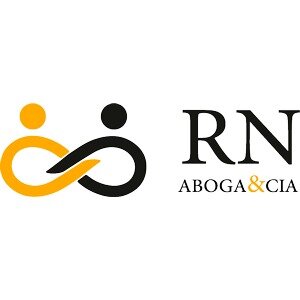Best Tax Increment Financing Lawyers in Seville
Share your needs with us, get contacted by law firms.
Free. Takes 2 min.
List of the best lawyers in Seville, Spain
About Tax Increment Financing Law in Seville, Spain
Tax Increment Financing (TIF) is a public financing method that supports infrastructure and community improvement projects. In Seville, as in the broader Spanish context, TIF is used to encourage urban development, particularly in areas that are underdeveloped or in need of revitalization. The TIF process involves earmarking future property tax revenue increases from a defined area to subsidize current development without additional municipal funding. The objective is to stimulate private investment and economic growth in targeted areas, thus increasing the overall value of the property and boosting future tax revenue.
Why You May Need a Lawyer
Navigating the complexities of TIF can be challenging without legal assistance. Common situations where you might need a lawyer's help include:
- Understanding the legal framework governing TIF in Seville and ensuring compliance.
- Drafting, reviewing, and negotiating TIF agreements with government entities or private developers.
- Ensuring that the TIF serves your project needs and aligns with municipal regulations and policies.
- Resolving disputes that arise in the context of TIF projects, such as zoning or environmental regulations.
- Evaluating the financial and legal implications of participating in or engaging with TIF-funded projects.
Local Laws Overview
The foundational laws governing Tax Increment Financing in Seville are embedded in Spain's urban and regional planning statutes. Key aspects include:
- Adherence to national and regional urban planning regulations which set the framework for TIF projects.
- Compliance with municipal bylaws specific to Seville, including the requirements for project approval and tax revenue allocation.
- Environmental regulations that must be observed in TIF projects to ensure sustainable development.
- Mechanisms for public consultation and participation in TIF project planning, ensuring community involvement in development decisions.
- Financial oversight to ensure transparency and accountability in TIF-related financial management.
Frequently Asked Questions
What is the primary purpose of Tax Increment Financing in Seville?
The primary purpose is to stimulate economic development, increase property values, and revitalize underdeveloped or economically distressed areas through investment in public infrastructure and improvements.
How does TIF work?
TIF works by capturing the incremental increase in property taxes that result from improvements within a designated area. These funds are then used to finance the improvement projects themselves or related expenses.
Who can initiate a TIF project in Seville?
TIF projects can potentially be initiated by local government entities, private developers, or a collaboration of both parties seeking to develop an area in accordance with city plans.
What types of projects can be funded with TIF?
Projects generally include infrastructure improvements like roads, utilities, public facilities, and other upgrades that promote economic growth.
Are there specific areas in Seville where TIF is commonly used?
Yes, TIF is often used in areas targeted for urban renewal, downtown redevelopment, or where there is a need for significant economic investment.
What are the benefits of using TIF from a developer's perspective?
Developers can benefit from improved infrastructure, lower project costs due to public financing, and increased property values once the area is revitalized.
Can TIF impact property taxes for current residents?
The tax increment used for TIF is based on the growth in property value, not an increase in tax rates, hence current residents typically do not face higher taxes because of a TIF project.
How long does a typical TIF district last?
The duration varies, but TIF districts commonly last until the project debt is paid or a maximum term defined by law, which could be 20-30 years.
How is public input incorporated into TIF projects?
Public participation is encouraged through public hearings and consultations as part of the planning and approval process for TIF areas.
Can TIF funds be used for private development?
While TIF funds are primarily for public infrastructure, they can indirectly support private developments by enhancing the areas surrounding a private project.
Additional Resources
For those seeking further information or assistance with TIF in Seville, consider the following resources:
- Seville City Council - Urban Planning Department: Essential for local regulations and permits.
- The Andalusian Regional Government: Offers support and oversight for regional planning initiatives.
- Legal Firms Specializing in Urban Development: Provide personalized legal consultation and assistance.
- University of Seville's Department of Urban Planning: Source for academic resources and studies related to TIF.
- Community Workshops and Public Hearings: Opportunities to engage with local government on urban development issues.
Next Steps
If you need legal assistance with Tax Increment Financing in Seville, consider the following steps:
- Identify your specific needs and objectives regarding the TIF project.
- Research and seek recommendations for reputable legal experts in urban development and TIF within Seville.
- Schedule consultations with potential legal advisors to discuss your project and evaluate their expertise.
- Ensure that the lawyer you choose has a proven track record in handling TIF projects and a deep understanding of local laws.
- Work closely with your chosen legal advisor to ensure all legal and regulatory requirements are met for your project.
Lawzana helps you find the best lawyers and law firms in Seville through a curated and pre-screened list of qualified legal professionals. Our platform offers rankings and detailed profiles of attorneys and law firms, allowing you to compare based on practice areas, including Tax Increment Financing, experience, and client feedback.
Each profile includes a description of the firm's areas of practice, client reviews, team members and partners, year of establishment, spoken languages, office locations, contact information, social media presence, and any published articles or resources. Most firms on our platform speak English and are experienced in both local and international legal matters.
Get a quote from top-rated law firms in Seville, Spain — quickly, securely, and without unnecessary hassle.
Disclaimer:
The information provided on this page is for general informational purposes only and does not constitute legal advice. While we strive to ensure the accuracy and relevance of the content, legal information may change over time, and interpretations of the law can vary. You should always consult with a qualified legal professional for advice specific to your situation.
We disclaim all liability for actions taken or not taken based on the content of this page. If you believe any information is incorrect or outdated, please contact us, and we will review and update it where appropriate.

















